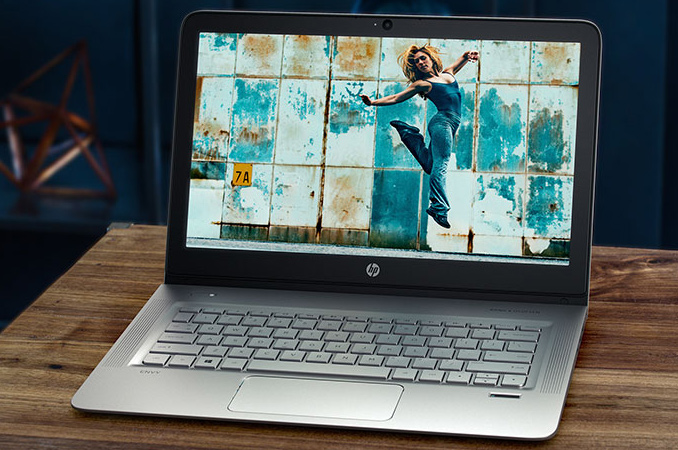HP Recalls Over 100,000 Laptop Batteries Due to Potential Fire and Burn Hazards
by Anton Shilov on January 26, 2017 7:00 AM EST
HP has expanded its voluntary recall of batteries due to fire and burn hazards. The batteries were used for various laptops sold under the HP and Compaq brands between March 2013 and October 2016. In total, the company has recalled over 140 thousand batteries in the U.S., Canada and Mexico.
The potentially faulty batteries were used inside such laptop families as the HP ProBook, HP ENVY, Compaq, Compaq Presario, and HP Pavilion. HP issues the first recall of 41 thousand batteries in June 2016, but this week the company extended the recall to include additional 101 thousand batteries. According to HP, these batteries have the potential to overheat, posing a fire and burn hazard to customers. To eliminate any risks, HP will provide a free replacement battery in each verified, eligible case. Meanwhile, for customers with 10 or more potentially affected batteries, HP has initiated a process to assist with the validation and ordering.
The affected batteries have the 6BZLU, 6CGFK, 6CGFQ, 6CZMB, 6DEMA, 6DEMH, 6DGAL, and 6EBVA prefixes in their bar codes. However, since not all batteries (with matching barcodes) and laptops are affected by the potential problems, the manufacturer advises to either download HP’s Battery Program Validation Utility that determines whether the particular battery may be faulty, or manually enter serial number and barcode of the battery into a special form on HP’s website.
In the recent years, multiple makers of notebooks and smartphones have run into problems with batteries that overheated, exploded or caught fire. In many cases such batteries have damaged property and caused injury. As a result, HP is taking the issue with the batteries very seriously and it is important to check whether your laptop is affected (even if you do not live in North America, where the recall is taking place).
Source: HP (via HotHardware).











19 Comments
View All Comments
Michael Bay - Thursday, January 26, 2017 - link
Woah. Still better than Samsung...so far.Phylyp - Thursday, January 26, 2017 - link
You're just sore that Samsung had more fireworks than your movies :-)Michael Bay - Thursday, January 26, 2017 - link
Hey, I imploded right on the stage for them once!Old_Fogie_Late_Bloomer - Thursday, January 26, 2017 - link
It would have been pretty funny if one of the phones had blown up on stage during a Samsung presentation.Phylyp - Thursday, January 26, 2017 - link
So is this an issue specific to HP themselves, or does it pertain to the manufacturer of the batteries? Given the issue spans multiple product lines (hence not a single design/shape of battery unlike Samsung's recent issue), I wonder if its something to do with the manufacturer - and does that mean this can potentially expand to include other brands using batteries from the same manufacturer?BrokenCrayons - Thursday, January 26, 2017 - link
Battery recalls are nothing new. I've seen them with a certain degree of regularity for well over two decades. It's good information to share because people tend to live under a rock and may not know, but no one should be surprised by this.Rocket321 - Friday, January 27, 2017 - link
I used to look forward to a battery recall, because it meant a free new battery. Any reason Laptop batteries only seem to last about a year when kept plugged in 95% of the time?Sarah Terra - Saturday, January 28, 2017 - link
Yes, keeping batteries stored at thier maximum potential voltage is what wears them out, it is much healthier for long term to cycle the battery regularly.hp79 - Sunday, January 29, 2017 - link
Keep it charged at less than 80% level. Thinkpads and some Dells have this feature where you can set the max level. It'll only charge to that level, then stop charging and run completely on AC.For older Macbook Pros with MagSafe2 connector, you can put a thin film or tape over the center pin which is used to signal the charging. By blocking this pin the laptop won't charge but still be powered by the AC. I use this method to keep it charged anywhere between 40-80% most of the time. I have a late 2013 rMBP13. It's a bit of a hassle, but better than not being able to control the battery charge level at all.
gdmaclew - Monday, January 30, 2017 - link
Never keep your laptop (Dell) plugged in full-time. My father did that despite my explicit objections and the battery lasted 13 months. I always let it cycle to at least 30% and then charge it.